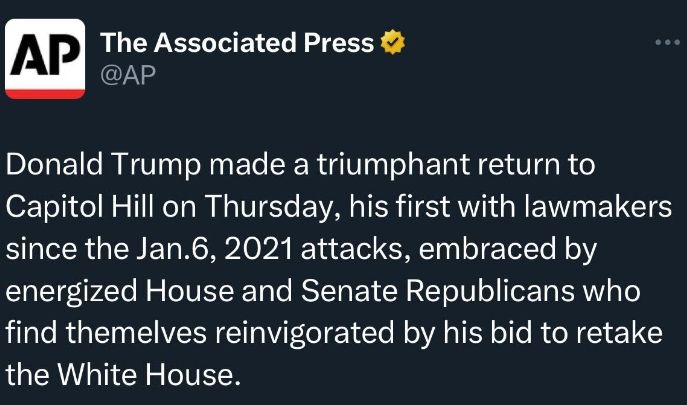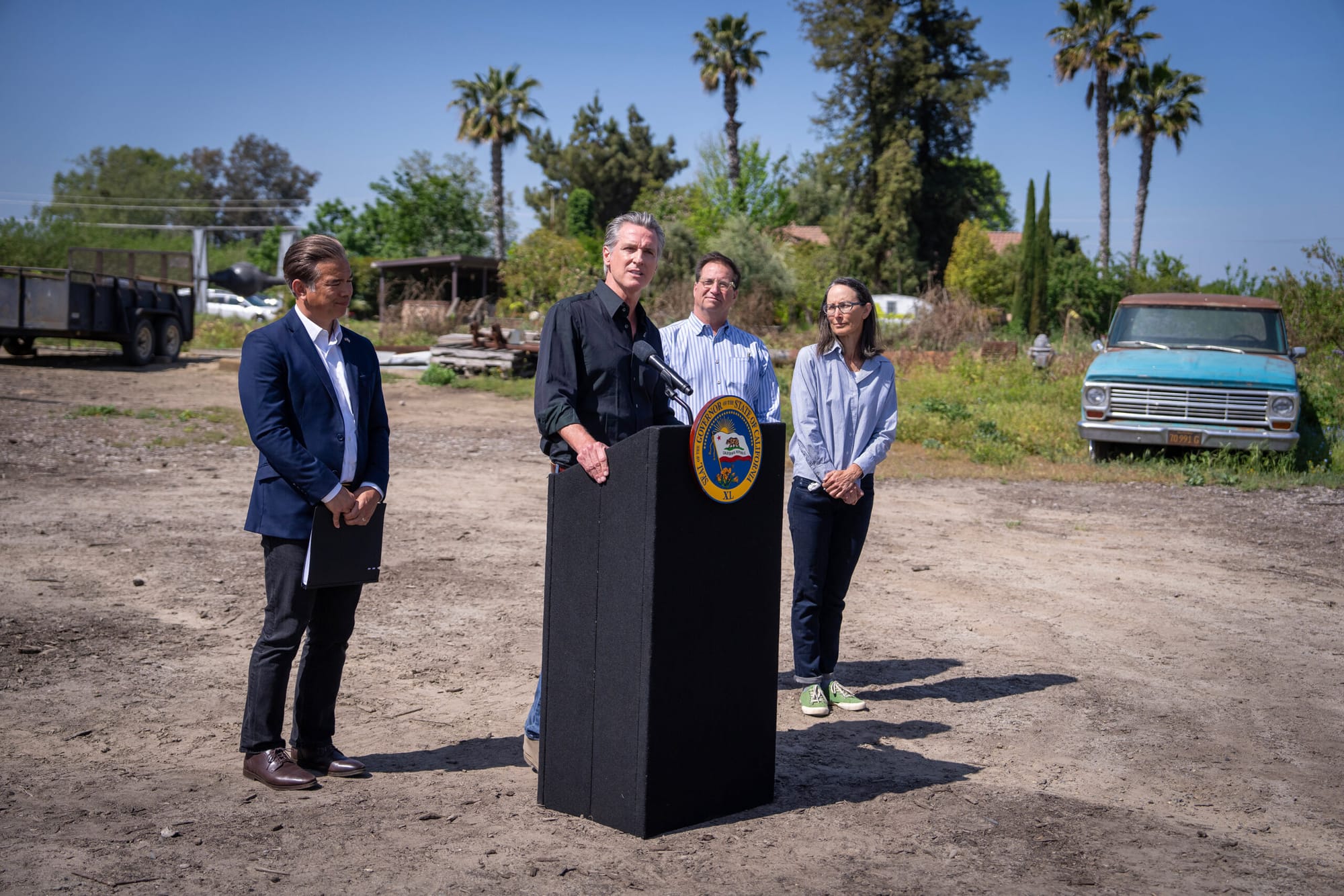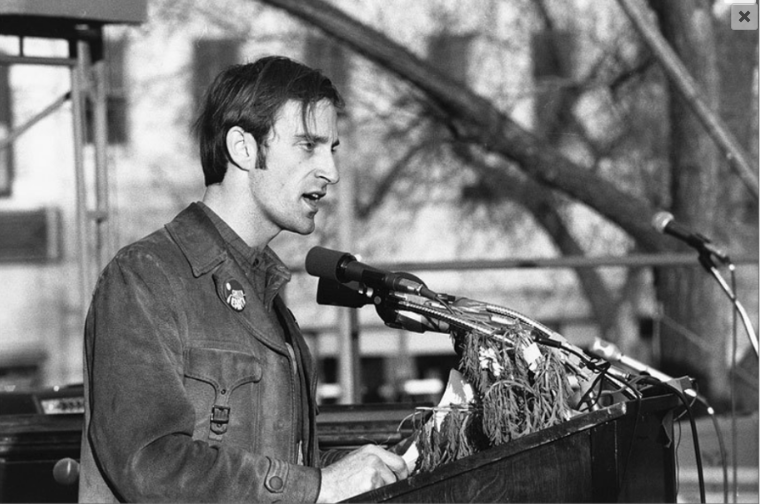At some point during the winter, my dentist's office went out of business.
There was no notice of it. Our family only learned it when another round of appointment dates approached and we started receiving phone calls reminding us of them. We're in a new office now, said the receptionist. And the name on the door is different, and your old dentist doesn't work here.
And that is how we eventually pieced together that the dentist's office we had been going to for 20 years was now out of business, with locked doors and disconnected phones and no more website, and that one of their last acts was to sell their patient lists to a larger practice in the next town over.
The practice our names were sold off to is a bit strange—because it's huge. It has a dozen chairs instead of three, and the prices seem higher and there seems to be more pressure to upsell services, so it all feels a bit off. Like a Costco, but for teeth? Or like taking your car to a dealer for maintenance, and having them ask you whether you want to spring for undercoating.
When our rural internet service provider went out of business a few months later, the effects were more immediate. There was an announcement on social media, and an hour later the equipment was turned off and a chunk of all the homes in this part of the county now had no internet and weren't going to get it back until they made arrangements with some other company. We scrambled; we got lucky.
Doctor appointments have been a mess, lately. The county has only one Affordable Care Act insurance provider; it's either Blue Shield or it's nothing at all. In the winter we each got letters informing us that due to a contract dispute with Adventist Health, our insurance would not cover treatment at either of the two nearby hospitals and that if emergency treatment was needed we should now go one county over, a 40 minute drive on winding roads, and present ourselves there for treatment. A month later the dispute was resolved and we were allowed to have Emergencies again; a month after that we got a new letter advising us that now due to another contract dispute none of our family doctors or specialists were covered, or at least wouldn't be until the various suits fought it out again over the price of cotton swabs or some such. This is, apparently, the new normal.
On the few occasions when I find myself in town, I find myself counting storefronts. The number of boarded-up buildings and parking lots blocked off with temporary fences keeps going up, and you can make a grim game of it by counting out, when you see one, how many of its direct neighbors have also closed down. Two side-by-side is common. Three in a row is rarer. My record count is four; I think it was a shuttered bank, fast food joint, some sort of legal or insurance office, and one of the omnipresent once-salons? It isn't just one street or one small town; driving from home to anyplace else, the drive is littered with empty buildings and For Lease signs that have been up long enough to become sun-faded. And it's not just the mom-and-pop shops, fragile even in the best of times. It's banks and fast food joints and insurance offices that have been there for decades.
The majority of them, like our dentist's office, stayed open through the pandemic. It was only when interest rates began to rise that things seemed to turn dire again. It might be that many small businesses were able to weather the pandemic collapse thanks to government money and more than a little borrowing, only to see the debts become unmanageable once the Federal Reserve declared the economy too damn hot and began cranking up rates to knock employment rates back down. Whatever the cause, those stores were open back then and they're vacant as of now.
Of those I know who have lost their jobs in the last six months, and it's no small number, most haven't found new ones. Among those who have, a particular sentence keeps being repeated:
"They're paying me what I was making in the 1990's."
So if you were to ask me, I would honestly have to say that no, the economy isn't good. From here it looks like the economy is terrible—like it's churning its way through a transformation that will leave everything a Costco or a Walmart or some other box floating in a parking lot ocean. Like the economy is a great fat lump writhing in opposition to the notion of even having human employees, when the promises of a Great Automaton Future are being screamed out with a new just-you-wait devotedness.
Oh, you can show me the numbers. I'll nod and I'll agree with you, yup, in aggregate all these lines are going nicely up or nicely down or are nicely stable, whichever of the three is the best answer. We've almost never seen a time when the lines all look so good, and we should be pleased as punch that it happened.
But my instinct, whenever a political wag or business talking head talks about the modern marvel of the 2024 economy, my emotional instinct, is anger. Fury, even.
Because whenever a man in a suit appears on television to boast that this is the best economy since the invention of Beanie Babies, to me it sounds like they are saying this is the best anything will ever be allowed to get, this is the best any of you will ever do, and you ought to be getting down on your knees, grateful you get even this much.
I am less optimistic about the upcoming election than most Democrats seem to be. I think the seditionist felon Donald Trump has a better chance of winning now than he did in 2016 or 2020, because public dissatisfaction with take-your-pick is if anything worse now than it was then, partly for good reasons, partly out of raw exhaustion. Part of that calculation may, admittedly, be my own irritation towards the question about whether the economy is "good," which is a useless polling question to begin with because at best you're asking voters to weigh in on macroeconomic data that they don't have a reason to know or care about, making the test a proxy for news awareness, and at worst it is a proxy question for raw partisanship, and if you want to know the answer to either of those questions you'd be better served by just asking them outright instead of asking them once-removed.
But the more substantive reasons for my wariness are structural.
The news media is substantially more right-wing than it was in 2016. You can't argue against this, you really can't. In 2016 reporters tittered about "emails" and seemed mostly eager to keep the election as finely tuned to "nailbiter" as they could muster, just to milk the lurid race for its entertainment value. Now that Donald Trump both mounted a genuine attempt to overthrow the government and has now become a genuine jury-certified convicted felon, the narratives needed to prop up far-right legitimacy—the Republican Party is full-throatedly behind the seditionist felon, after all—become so tortured as to amount to far-right rhetoric themselves.

That depiction of Trump is particularly Riefenstahlian, enough so that someone in the AP offices scrambled to pull it back, but it went out in the first place because the Associated Press and other outlets have vowed to maintain a studious indifference on whether America should be run by an insurrection-promoting felon surrounded by fascists promising to undo the rule of law and so can only report on the election according to the usual narrative conventions of who is "energized" or "reinvigorated" by the possibility.
Above all, the "free press" seems utterly unconcerned with the growth of a political movement that relies primarily on misinformation. That suggests that we do not actually have a "free press" at all, and not because they are not "free." It is because they are not "press."
The wealthy are coalescing behind Donald Trump because they are garbage people who would support Satan himself for a ten dollar tax cut. There is no need to elaborate on this, other than to note that we all saw it coming. Corporatism is seen as more important than democracy, because democracy is the thing that keeps getting in corporatism's way.
The polling keeps telling us it will be a tight race, and while we can huff all we want about how the race isn't fully underway yet it is an election between two of the most known quantities in politics. There is Trump, an adulterous seditionist felon whose speech patterns have degraded even more into venomous incoherence than during his most desperate White House days, and there is Biden, whose career has been so long and consistent that you could be forgiven for thinking he came over on the Mayflower already a sitting senator.
To be sure, there are a great number of voters not paying attention. And if they're not paying attention after indictments for seditious conspiracy, the end of federal abortion rights, and the rise of a would-be ruling coalition that promises Holocaust-scale deportations and revenge-based jailings of political opponents, they are not likely to come to new political awareness between now and November. These are not voters who can be counted on. First, they are impossibly flighty. And second, they are among the most manipulatable people on the planet—and there are no end of actors looking to manipulate them, and there is no end of money and tools available for doing the manipulation.
But my biggest reason for believing that the seditionist felon could well retake the White House is because in twenty years, I have never seen a more flaccid, less energized liberal movement. I have never seen a Democratic base that is less engaged with what their leaders are doing, or should be doing.
Now, the world Online is not the world of Reality, we all know that. But we see it in declining traffic to news sites, and we see it in a new hollowness that largely forgoes activist rhetoric in favor of halfheartedly presented outrage fodder that is propped up one day, forgotten the next. Donald Trump is a known quantity, and the counterproposals to the new shockingly fascist agenda of his Republican Party allies consist of ... not very much, to be truthful.
The policies presented in this election cycle will be that Donald Trump is bad, and that if you vote for the Democratic Party then you'll get Not That. Not anything else in particular, mind you, just Not That. Abortion rights will not be restored, they just might not go away quite as fast. We've solved health insurance and taken an enormous step towards hardening our infrastructure, and next we will be doing not a damn thing, really, because the other side is completely out of its mind and the possibilities for bettering America in any capacity are, in the near term, close to zero.
So election-year promises have mainly coalesced around oppositional negatives. Vote for the not-Republicans because we will not be destroying federal worker protections to install layer after layer of unqualified partisan cronies, and because we're not the ones promising to undertake a mass-deportation scheme rivaling the Holocaust in its planned scale, and the next time the Supreme Court issues a ruling so ridiculous and badly premised that it calls into question the very fabric of our system of laws, well, there's not a lot we can do about it but you can be sure we'll at least respond with a brow-furrowing the likes of which Sam Alito's never seen.
To some extent that is of necessity. If the already-captured press can muster no journalistic outrage over the gleeful embrace of corruption and criminality by one of the two major American parties, then it falls to Democratic campaign mailers to point out that no, that is actually a very big deal even if the professional charlatans on the cable news shows can't muster up the courage to say so.
But on the other hand, I promise to stand in front of a far-right tide and fold my arms crossly as it rises around my feet is not the barnburner slogan of past high-stakes election cycles. And that brings us back to the empty storefronts in towns that maybe aren't yours, and this unsettling moment of economic weird in which everything, everywhere seems to be changing, and none of it for the better.
There have been quite a few editorials expressing consternation that voters do not understand how robust the economy is, essays that press for Democratic voices to rebut Republican insistences that things were much better when Trump was farting around the White House yelling at staffers and watching himself on television. And all of that is fine and good, except that it does not take into account the likelihood that none of the voters who think the economy is bad will be convinced by having yet another talking head sternly explain it to them. It isn't that sort of question; they're not looking for that sort of answer.
If you think the economy is bad despite you, personally, having fatter pockets than you once did, then "the economy" is likely your stand-in for some far more specific, more local grievance. Maybe it's about inflation. Maybe it's about housing. Maybe it's about your own petty partisanship, or another bit of personal racism on your part because you heard someone speaking a language you can't and now consider the grocery store to be enemy territory. In none of these cases is a Good Talking To going to change your mind.
But if you are despairing about the state of some segment of the hopelessly abstract "economy" because that problem does affect you personally, or because you have suddenly gone from living on the rural outskirts of a quaint small town to living on the outskirts of a Bruce Springsteen song, then you probably interpret those same editorials as a personal insult. It really does sound like your betters are telling you that you're the crazy one, and if you don't like all of this then you must just be a dimwitted crank because this is the sort of economy the important people in Washington, D.C. dream about overseeing.
Telling Americans that the economy is Good and that they, personally, are just Wrong is a dicier proposition than most of these columnists are letting on. Nobody anywhere, on any side of any aisle, wants to hear that their current lot is as good as it gets. That unspecific dissatisfaction is the reason incumbents are voted out of office approximately every damn time it happens. That unspecific dissatisfaction is why the word malaise remains one of the most feared words in politics.
The unemployment numbers are low right now—but it's also the case that many have been forced into lower-paying jobs or the so-called "gig economy," a valence filled by temp workers and the desperate and one that is fully BYOhealthcare. That last bit is of special note; our family's health insurance costs are far above our monthly mortgage payments, and either of those are high enough to make a mockery of young Americans' attempts at financial independence.
You can rent, and presuming you can find a place that's open the rent will be steep and you'll likely be paying an additional premium due to new industry software that allows property managers to privately share pricing with their competition—allegedly colluding via algorithm, according to multiple class action suits and an expanding Justice Department probe.
The good economic news is that your family of four can now buy a television set that's as big as your living room plausibly allows, if you have a living room, and it won't set you back more than a few weeks' worth of groceries. The bad news is exactly that, too.
Inflation is finally under control, thanks to the Fed stepping in to make sure post-pandemic price increases on food and other necessities were met with a good strong kneecapping of job markets so that there wasn't so much money out there for price gougers to claw at. But inflation this time around was a spotty, suspicious mess to begin with, more the result of corporate profit-taking than supply chain disruptions, and remains conspicuously focused on whichever market sectors are most vulnerable to monopolistic or private equity machinations. Own a pet? Your last veterinary appointment probably cost a bundle, and there was probably a new name on the door, and the service was probably shorter and worse.
It is almost as if Enron's crooked market manipulations were being taken as the new foundations of our reshaped "economy." Almost. Almost.
It's perfectly fine for Americans to be irritated about all of those things, and to lump them in with the "economy" whether they belong there or not. Whether or not veterinarian bills, housing prices, boarded-up shops, or your new need to subscribe to every major company's "entertainment content" as a separate monthly fee all count as "the economy" or count as something else is for experts to bicker about, but the general public will count it all whether you want them to or not.
And it's this general sense of dissatisfaction, of things going the wrong direction even if you, personally, are employed and housed and can afford all the new bills, that sends political parties packing in election cycles. That's why editorialists are panicking and imploring Biden to tell people that Actually everyone's doing just great and if you think otherwise there's something wrong with you.
It's a negative argument. It's an assertion that disclaims responsibility for making anything better, and instead points the finger at voters and tells them the problem lies with them. And boy howdy, I would not want to be a candidate riding that horse to election day.
Voters don't want to hear that the economy is good or the economy is bad. They want to know that whatever they're aggrieved about will, at some point, get better. The seditionist felon Donald Trump is bellowing that by God he will make everything better, and it'll happen because he's going to be jailing people, and deporting people, and the rest will all be goddamn magic. It's all lies, but lies already won him one term in office and not even the "seditionist felon" part appears to be a dealbreaker for the Americans still enamored with him.
The Biden administration has spent three and a half years doing real, down-in-the-dirt bureaucratic good, and most of it is weedy stuff picking away at corporate monopoly powers and anti-consumer grifting. Little of it makes it to the news programs Americans watch. Did you know that the Justice Department was probing alleged price fixing in rental markets? Maybe. But you certainly didn't have it drilled into your head, on liberal blogs, with the intensity of "Trump said outrageous thing, come let us watch the outrageous thing and all express our mostly impotent scorn."
What are the plans for a next Biden term? We needn't even bother asking what Democratic Party plans are if voters, by some indistinct and hypothetical miracle, returned both House and Senate to Democratic control—nobody talks about it. The base demands nothing in particular. There are no election year promises that don't revolve around "vote for me to keep these lying ratbastards away from power for another few years, we'll figure out the rest as we go."
Again, I ask: What is the liberal case for power? What is the Democratic case for power? Comb through your news feeds, throw out every story that revolves around a far-right figure saying something grotesque or untrue, throw out every story reporting, often in banal tones, on Trump's "legal troubles," and what narrative are you left with? Not a damn thing, probably.
It's true, the elections are still months away. It's true that the pageantry of it all has not yet started, though the first debate will kick that off soon enough. But I cannot be the only one alarmed by an activist malaise that sees precious little activism. No pressuring leaders to do better. No pressing for economic fixes—no, we're now in a state where it's Biden administration bureaucrats who are pressing forward with those reforms and would-be liberal activists are left to cheerlead it after the fact.
I know what is happening in the small towns around me. I can see it just fine. We got through the pandemic, we got to a vaccine, but small business debt piled up and the commercial shops and eateries and dentists' offices shuttered afterwards, after we declared the pandemic over and done with and Trump's sorry ass had been pried out of the White House.
The buildings boarded up tend to be older ones already in need of repair; there aren't a lot of pristine stucco rectangles in that mix. Maybe those repairs proved the final straw for many, because contractors are hard to come by right now and renovations are very damn expensive. Many of those buildings will likely be torn down, and we know what will replace them.
The three and four vacant buildings in a row will each be bulldozed, and in their place a larger box will be set down, and it will be owned by a national chain because those are the only places that can afford to build new boxes, and it will look identical to the same stores in Los Angeles, and Tulsa, and Orlando.
If the town is aggressive to the point of being pissy about it they might be able to shake loose the lots for a little more housing instead. The dirty not-secret is that national chains don't want to piece together properties to be rolled up into a new site unless they have to. New construction tends to take place on the outskirts of town, where the orchards and vineyards and hayfields are or were, because that's where you can build much bigger boxes with much bigger parking lots and the town will build a brand-new road that goes right to your driveway, if you're planning a big enough box.
That's just how things are, and that's fine, right? That's what the future holds for us, I'm sure. We will all sprawl out more, and the box stores will get bigger and will become the near-entirety of commerce, and there's no fire insurance to be had for any price because the insurance companies have looked at recent fires and predicted future temperatures and don't want anything to do with it. And that's what a good economy looks like, that's all.
If you do very well for yourself, if you find a job that pays enough to survive or to thrive and if your town is welcoming enough and compliant enough, this is the future that can be yours. It's the only one on offer, in fact. If you don't like it, there's something wrong with you.
















Comments
We want Uncharted Blue to be a welcoming and progressive space.
Before commenting, make sure you've read our Community Guidelines.